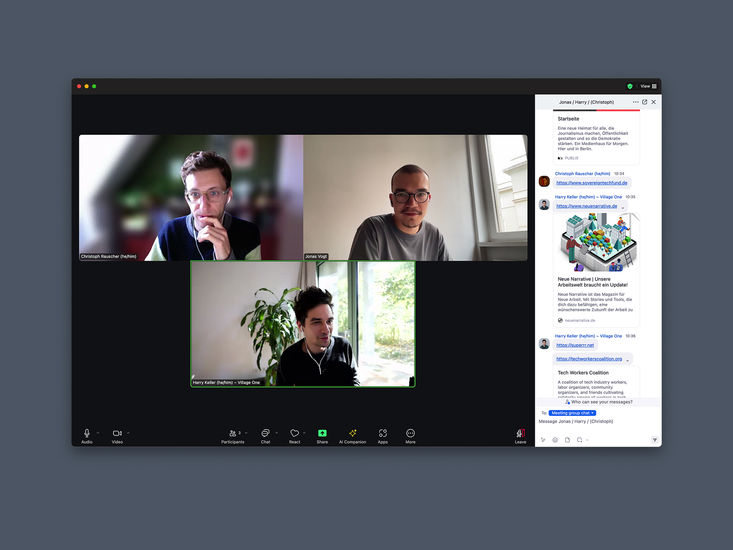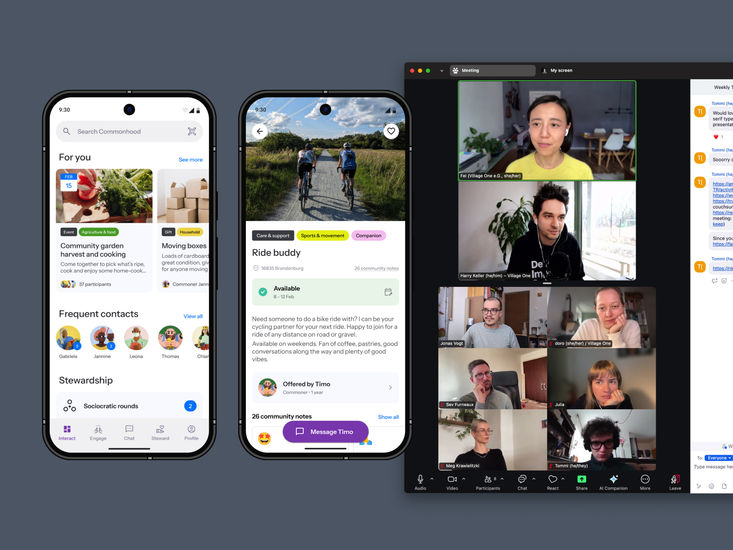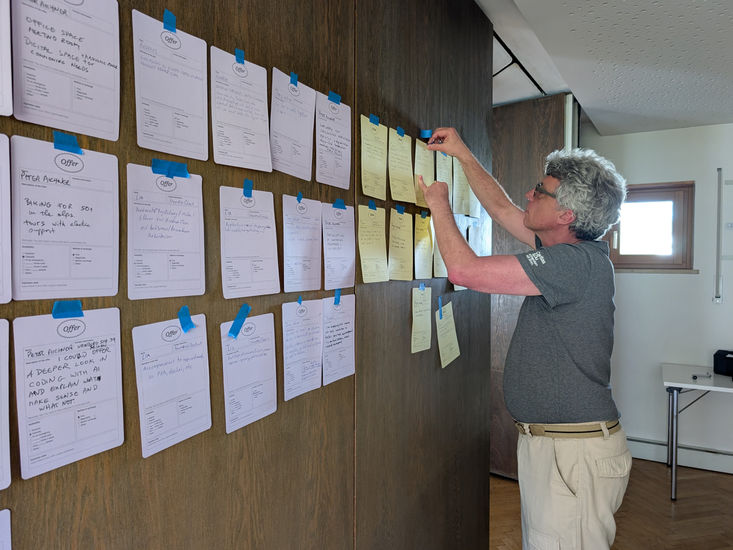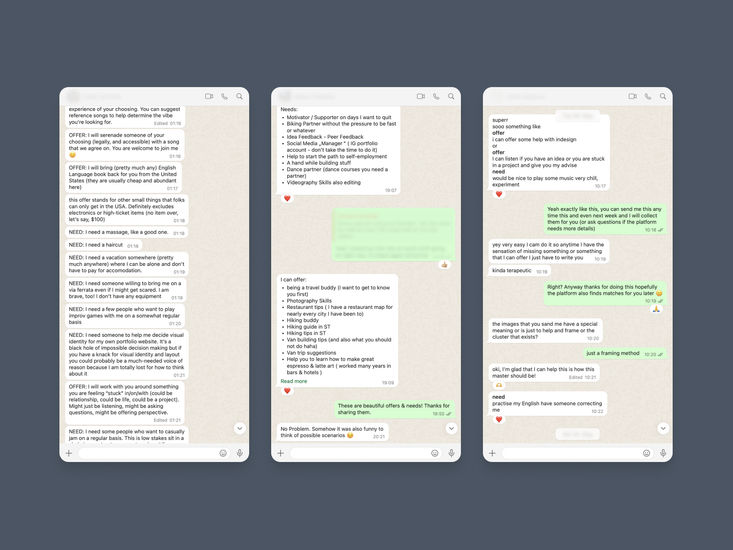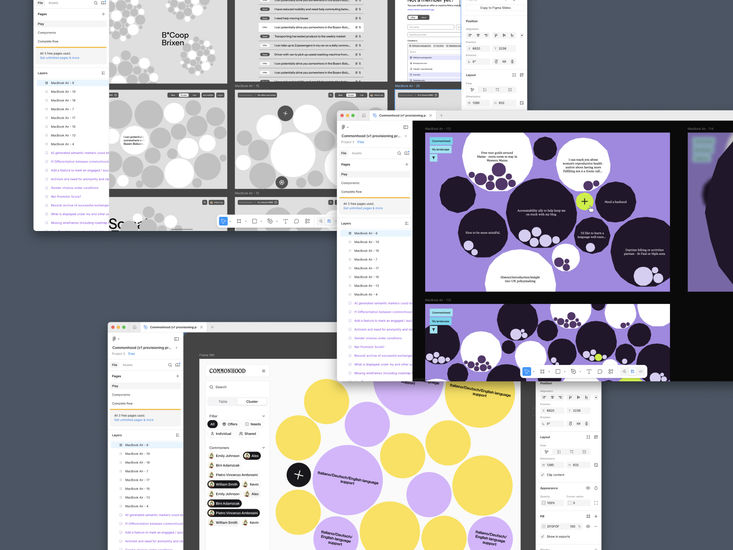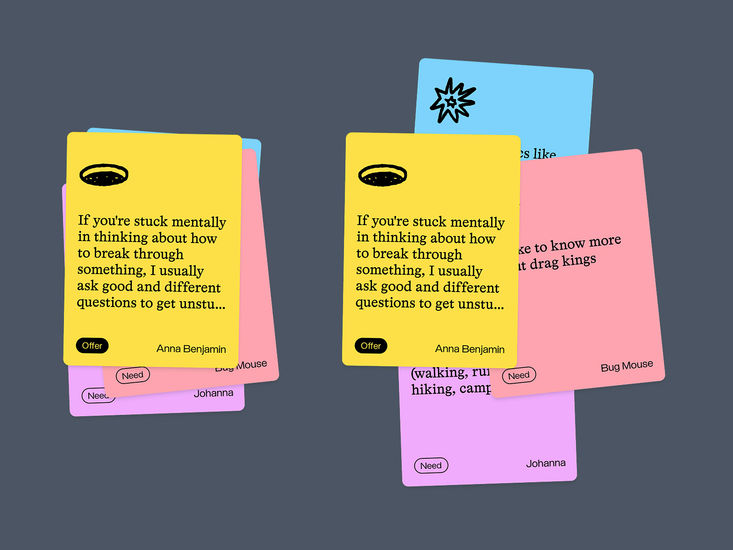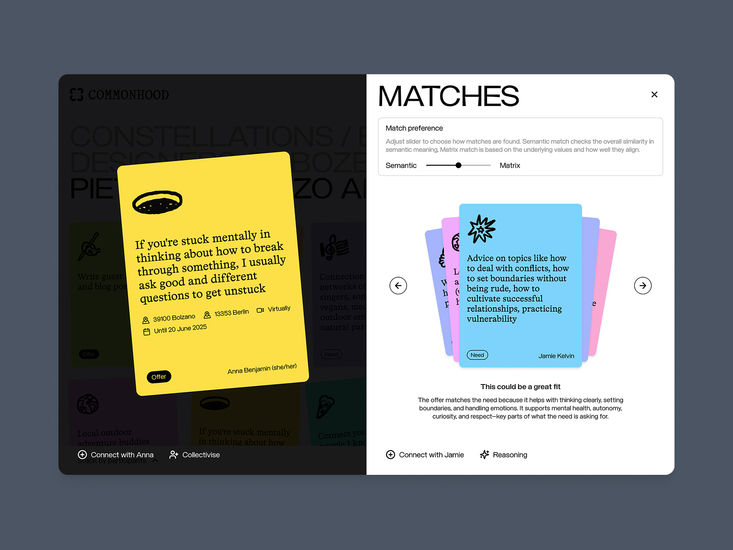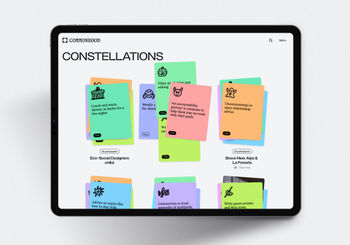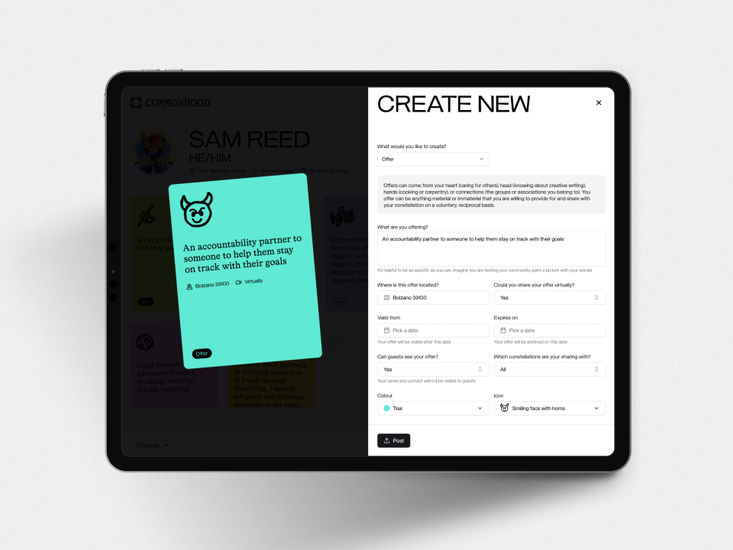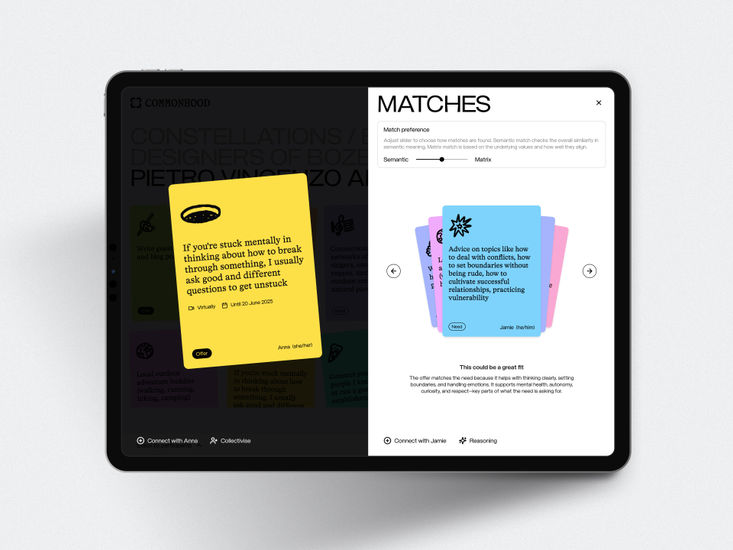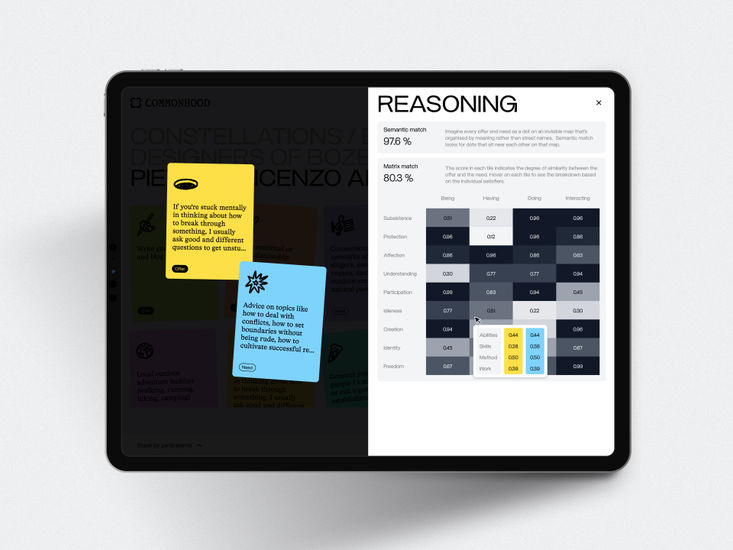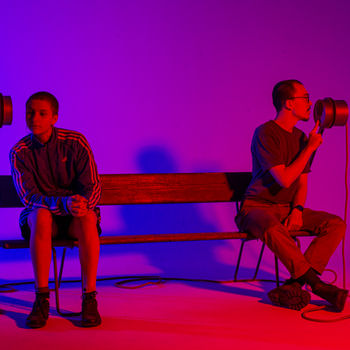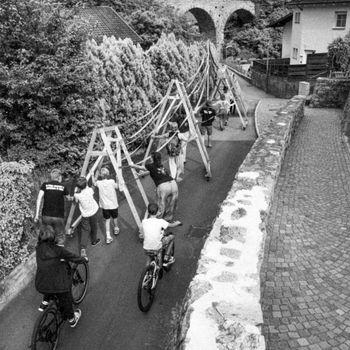The Research: From Critique to Composition
This project emerged from a deep dive into how digital technologies often reinforce capitalism’s extractive logics—but don’t have to. Drawing from feminist technoscience, post-capitalist economics, and commons theory, the research asked: how can digital tools empower collective practices of provisioning, care, and governance? Through iterative workshops, field testing, and co-design with real communities, Commonhood began to take shape, not as a universal solution, but as a situated response.


